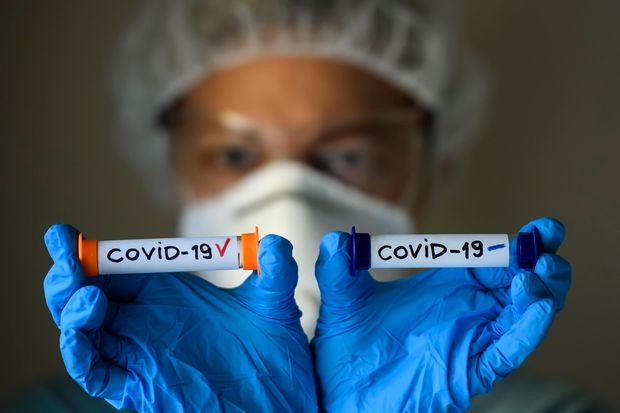“Ask not what your country can do for you, ask what you can do for your country.” John F. Kennedy
As our region and our country endure the dangerous COVID-19 outbreak, we must accept radical changes. Americans do not like to be told what to do, but we must now accept measures that are outside of normal times. Historically, health care systems are challenged in terms of personnel, equipment, costs and space; our local health care system is no different. We are anxious, even frightened for our personal health and that of our loved ones. People are dying, and we are wondering when it will hit closer to home. But there are things you can do to help and we all have a role to play.
Our nation’s top doctors have developed guidelines to limit spread, and we must follow them. Every contact has the potential to spread the virus because it is difficult to identify those infected when so many are without symptoms. Forwarded emails and re-tweets show how quickly one submission can be sent to 10 people, who each share it with 10 more, and so on. It’s called “going viral” — and that is what is happening with COVID-19. The spread becomes exponential very quickly.
Stay home. Keep your distance, except to help a neighbor, attend a blood drive, shop for food or go to the pharmacy. In those cases, keep your distance. Wash your hands frequently. Soap and water are better than hand sanitizer so if you can, wash.
Our hospitals and health departments have mobilized task forces and are anticipating needs in the event of a surge in cases. Our Governor has imposed serious emergency measures statewide. COVID-19 is highly contagious, so families may not be able to be at the bedside as we are accustomed to, in normal times, when loved ones are hospitalized. Now, visitors put others at risk and also use up gowns, gloves and masks needed for the protection of our doctors, nurses and other staff providing patient care.
As I write this, 10 percent of Italy’s COVID-19 patients are health care workers. We cannot afford to lose so many from the ranks of our own health care providers, who are dealing with fear and anxiety but also exhaustion. Please exercise patience in your interactions with our local health care system.
Hospitals need to conserve precious resources such as ventilators and other vital equipment, and despite our medical advances in the U.S., we lack adequate stockpiles. It is too late to assign blame; however, we all need to anticipate what happens if we or one of our family becomes very ill.
Now is the time for family discussion and for making and documenting decisions regarding end-of-life choices. This is true for all, but especially for anyone with serious underlying chronic medical conditions, advanced age or intractable disease. Don’t wait until a medical event forces a trip to the Emergency Room under high-stress and emotional circumstances that will make clear, rational thinking difficult; you can find the “Maryland Orders for Life Sustaining Treatment” form online at marylandmolst.org.
Protocols exist to make tough decisions who receives advanced intensive care and who receive supportive, palliative care; we pray we will not need them. These are rapid and grave circumstances for some, despite the fact that many will recover. Yes, COVID-19 is more likely to overwhelm the elderly and frail, but anyone of any age can get it, can infect others, and also become dangerously ill.
Pandemics have happened before and history shows that many may succumb. Nonetheless, here on the Shore, we have an incredibly generous and connected population, and together we can pull through. This will end, and we will see the development of treatments and vaccines. We will mobilize for future pandemics based on our experience with COVID-19. Be strong and grateful for the blessings around us, and pray for mercy in this horrible time. And please, be part of the solution rather than part of the massive problem we face in the days ahead.
Michael J. Fisher is a retired physician who practiced for over 30 years in Easton and the Mid-Shore.



Eva Smorzaniuk says
Well and truly said, Dr. Fisher! This will require cooperation, patience, and compassion from everyone in our community. I would also like to highlight the additional burden and stress this pandemic will place our health care deliverers. It is of utmost importance that they are kept safe and healthy, or all of us will be up a creek.
Peter Gallagher says
Terrific Mike,?miss your pretty voice on Sundays. Peter
Jane Murphy says
Thanks, Mike, for these thoughtful comments and good advice.
Jane Murphy (self-quarantining in Oxford)
Liz Fisher says
Great article and advice. Dr. Fisher’s article serves as a reminder of things we can do to help mitigate this health crisis, and what we can expect for the future. Strange times indeed, but encouraging that at this point the Shore does not have many cases of COVID-19. We can only hope that adherence to experts’ recommendations will truly limit the effect of the disease locally. I also appreciate the reminder of the importance of having end-of-life directives in place.
Richard Marks says
Michael,
Very comforting to hear sage advice from one of our most respected local physicians. When you speak, people listen!!
Thank-you.
Kelly Feil says
Wisdom and kindness, as always, by Dr. Fisher. May we all keep our eyes on what matters and do what we can do to be prepared.